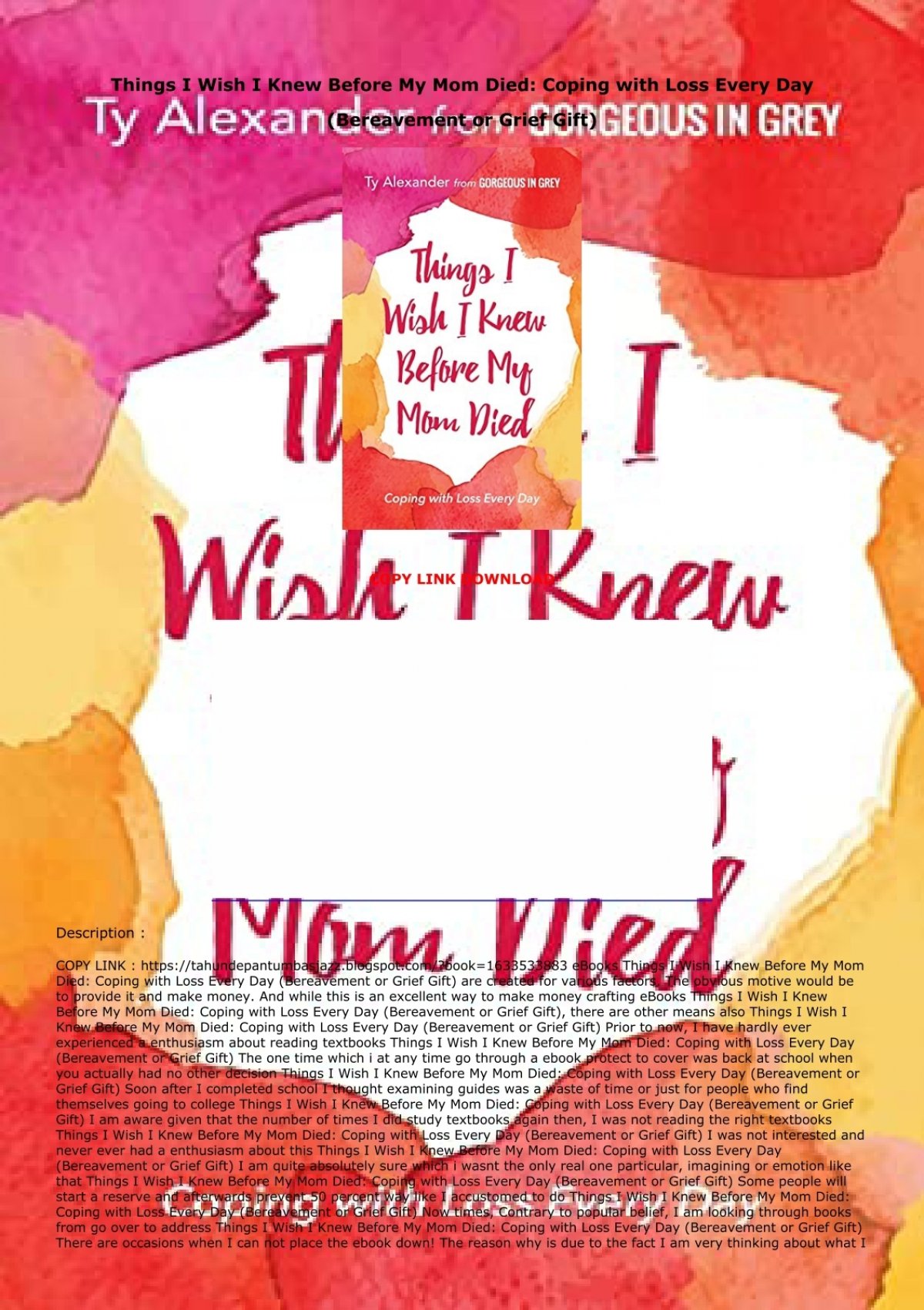The death of a mother often envelops the heart in a shroud of grief, sorrow, and profound introspection. In moments of loss, one finds themselves navigating the tumultuous seas of emotion, yearning for guidance and clarity. The Bahá’í teachings present a perspective that transcends mere consolation; they offer a framework for understanding life’s great mysteries, including the inevitable transition of death. Delving into these teachings provides invaluable insights that reflect the serenity of the spirit and the continuity of existence.
At the core of Bahá’í philosophy lies the belief in the oneness of humanity and the universality of spiritual truths. This notion serves as a foundation for coping with loss, suggesting that while the physical form may perish, the essence — or spirit — lives on as an eternal entity. In the face of grief, embracing this understanding can render solace, transforming despair into hope.
One of the first revelations that emerge from Bahá’í beliefs is the concept of the soul’s immortality. According to Bahá’í writings, the soul is akin to a budding flower, flourishing in the garden of existence. Just as a flower transitions from a seed to glorious bloom, the soul evolves through the realms of existence. Thus, the death of a mother is not an end but rather a continuation of her spiritual journey. Recognizing this metaphorical evolution helps to mitigate feelings of finality associated with death.
Moreover, a profound insight offered through Bahá’í teachings is the understanding of God’s love as an omnipresent force in our lives. In the throes of loss, it is crucial to remember that divine love transcends all trials, providing a sense of comfort and assurance. One may envision God’s love as a lighthouse in the stormy seas of sorrow, guiding lost ships back to safe harbors. Engaging with this imagery allows individuals to feel embraced by a cosmic compassion, illuminating the dark corners of grief.
In addition, the Bahá’í faith emphasizes the interconnectedness of all souls. The vibrant tapestry of humanity weaves us into a collective entity, where each thread plays a crucial role in the overall picture. When faced with the loss of a maternal figure, it is essential to gather strength from the relationships and memories shared with the departed. Reflecting upon shared experiences, lessons learned, and the love exchanged forms a bridge between the seen and the unseen. This reflection reinforces emotional resilience and provides a sense of belonging even in solitude.
Bahá’í teachings also address the necessity of mourning, encouraging individuals to embrace their emotions rather than suppress them. Grief is likened to a torrent of rain, necessary for nurturing the growth of new life. In this respect, allowing oneself to feel sorrow signifies acceptance and ultimately paves the way for healing. When sorrow spills over like a relentless tide, acknowledging this emotional flood can be cathartic, leading to a deeper understanding and appreciation of the life lived.
Through Bahá’í perspectives, it is evident that every experience, even the painful ones, is imbued with meaning and purpose. Life’s trials can function as opportunities for spiritual growth—a crucible that molds character and strengthens resolve. In essence, each moment of despair can cultivate a garden of virtues within the soul, fostering attributes such as patience, compassion, and faith. Every tear shed becomes a seed, capable of blossoming into magnificent flowers that reflect the love shared with the departed mother.
One intriguing aspect of Bahá’í teachings is the concept of individual agency in the face of death. While loss may be a source of pain, how we respond to it is within our control. The emphasis on the power of our thoughts and actions in shaping reality serves as a reminder of our inherent strength. Whether through acts of service, volunteering, or advocating for those affected by loss, channeling grief into positive endeavors can create meaning and allow the memory of the departed to endure in a most uplifting manner.
In this context, community plays an instrumental role in the grieving process. The Bahá’í community stands united, offering support and encouragement. The shared experience of loss fosters bonds that alleviate the loneliness often associated with mourning. Engaging with others who honor the passage of a loved one can create an environment that celebrates life and mitigates despair. The warmth of communal fellowship can transform sorrow into a shared journey toward healing.
Additionally, Bahá’í teachings encourage individuals to engage in spiritual practices that foster inner peace and facilitate connection with the divine. Prayer and meditation can serve as the vessels through which grief is transformed into gratitude and remembrance. Through contemplative practices, one may cultivate an intimate dialogue with the spirit of the departed. This communion not only reaffirms the continuity of existence but also instills a lasting bond between the realms of the living and the departed.
In conclusion, the journey through grief is complex yet navigable, especially when informed by the profound wisdom embedded in Bahá’í teachings. The intertwining of love, hope, and spiritual understanding creates a path that transcends despair, encouraging growth and connection. Embracing the teachings of the Bahá’í faith offers a roadmap for those wrestling with loss, guiding their hearts through the storm of grief with the promise of new beginnings. Ultimately, the mother’s legacy continues, echoing profoundly in the lives she touched, ensuring that her spirit remains forever intertwined with the living fabric of existence.
